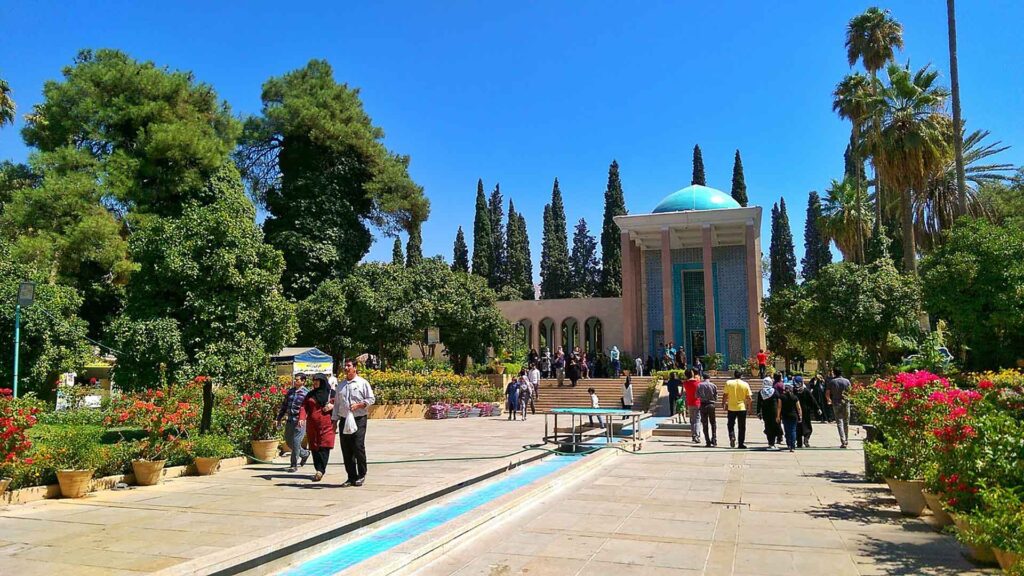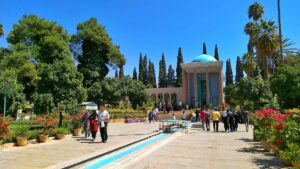Ashraf Ud Din Mosleh Ud Din Saadi, known by his pen name Saadi, was a renowned Persian poet. While the exact date of his birth remains uncertain, some scholars suggest that he was born in 1213 in Shiraz, Iran. Saadi’s father served as a government employee, but he passed away during Saadi’s childhood. Consequently, Saadi received his early education from his father before continuing his studies under the guidance of esteemed teachers in Shiraz. Seeking further education, he embarked on a journey to Baghdad, where he benefited greatly from the teachings of the renowned scholar Sheikh Shahab Ud Din Saharwardi.
However, when he learned of the destructive reign of the brutal king Halako Khan, who had ravaged Baghdad, Saadi decided to leave the city. He then embarked on a remarkable journey that took him to destinations such as Makkah, Madinah, Palestine, Syria, Asia, and North Africa, during which he performed the Hajj pilgrimage 14 times. Some accounts from Saadi’s “Bostan” reveal that he also visited Hindustan and Turkistan. English history acknowledges him as the second greatest traveler of the East after Ibn-e-Batuta. Throughout his arduous journey, Saadi faced numerous difficulties, but he displayed remarkable courage and patience in overcoming them.
Saadi’s literary contributions were vast, but his masterpiece is considered to be “Bostan.” His profound fascination with Sufism is evident in his works, with a significant portion of his books focusing on Sufism and spiritual connection with God. “Bustan” narrates Saadi’s personal experiences, opinions, and reflections on life. Additionally, Saadi is renowned for his book “Gulistan,” meaning “the Flower Garden.” Translations of “Gulistan Saadi” in English have had a profound impact on people’s lives, allowing those who don’t understand Persian to benefit from its wisdom. The book is widely taught in educational institutions, and many students memorize it. Structured in the Mathnavi style, “Gulistan” comprises couplets and has also been translated into Dutch.
In its English translation, “Gulistan Saadi” is divided into eight themes, each presenting moral stories. These themes include “On Love and Youth,” “On Rules for Conduct in Life,” “On Weakness and Old Age,” “On the Effects of Education,” “On the Advantages of Silence,” “On the Excellence of Contentment,” “On the Morals of Dervishes,” and “On the Manners of Kings.”
Saadi possessed a fluent and expressive style that effectively conveyed his emotions and opinions to his readers. His poetry resonated deeply with believers due to his skillful use of emphasized and eloquent words. Saadi consistently expressed gratitude towards God and offered advice to people, encouraging them not to lose hope in the face of stress and difficulties. He held a deep affection for his native homeland, which is prominently portrayed in his poetic works.
In his later years, when the ruler of Multan invited Sheikh Saadi, he regretfully declined the invitation due to his ailing health. Instead, he chose to rest in his hometown of Shiraz, Iran. Saadi passed away in 1291, and his final resting place, known as MAZAR-E-SADIA, became a revered tomb commemorating his legacy.







2 thoughts on “The Legacy of Saadi: A Journey Through Poetry and Wisdom”